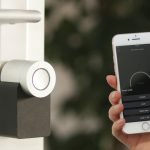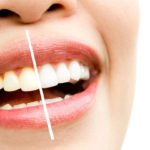A drive-thru COVID-19 test is the most efficient method of testing yourself again coronavirus contributing to the minimization of spreading. The risk of spreading coronavirus is a little bit less on the outside, in well-ventilated areas.
Drive-through testing sites allow for higher safety than office visits. In an indoor room, coronavirus transmission rates are higher than in an outdoor setting. A person infected with COVID-19 can spread the disease to thousands of other individuals in a non-ventilated bus!
Before you search for “drive-thru testing near me“, here are some of the benefits of drive-thru COVID-19 testing.
#1 Immediate Capture of Data
Scanning driver licenses or 1D, 2D, or QR barcode identifications provided by the government with scanners or handheld devices quickly collects patient records, avoids human interaction and helps control infection.
IDs may also be screened, minimizing visibility even further, through closed car windows. Plus, no manual entry into devices is needed for the data, further minimizing physical interaction with potentially polluted surfaces.
#2 Fast Positive Patient ID
Not only does scanned data connect specimens to patient IDs, but it also makes it easier to print sample labels with accurate data from mobile printers. It facilitates simple sample tracking and shortened diagnostic times.
As a result, two-point confirmation between collecting samples and printing specimen labels makes the process fast and precise.
#3 Robust Tools, 24/7
The high number of patients places heavy wear and tear on vital devices and supplies in a drive-through testing center. Durability characteristics are essential.
With drive-thru testing, that’s not a concern. You’ll be fitted with hot-swappable battery control charging cradles and long-lasting batteries, along with durable drop ratings, plastic disinfectant-ready, and quality-assured specimen labels.
#4 Keeping Others Safe
They could infect other, potentially healthier individuals in a hospital or in a waiting room, either waiting for their own examination or there for an unrelated medical cause if anyone is positive for COVID-19. They’re not exposing more drivers to any illness they might have while they’re in their car, so that’s a real bonus.
What If You Don’t Have a Car?
Drive-through scanning, clearly, favours those with cars, but walk-ups are also available for drive-through coronavirus testing. Health practitioners should set up pop-up clinics in crowded urban environments where individuals can stroll to.
A car does provide some protection against exposure. So they should have the correct safeguards in place as long as emergency personnel are notified ahead of time to be trained against the spread of coronavirus.
The rush of COVID-19 patients or those who only want a coronavirus screening, into hospital waiting rooms and emergency departments may also be alleviated by pop-up services.
Final Note
Times are rough for medical practitioners these days, and it is utterly vital to provide highly effective new technologies. The researchers developed the DT (Drive-Thru) model to assess suspicious or symptomatic individuals for a better and more effective screening system. The DT center is based on previous principles of the dispensing point for influenza pandemics.















